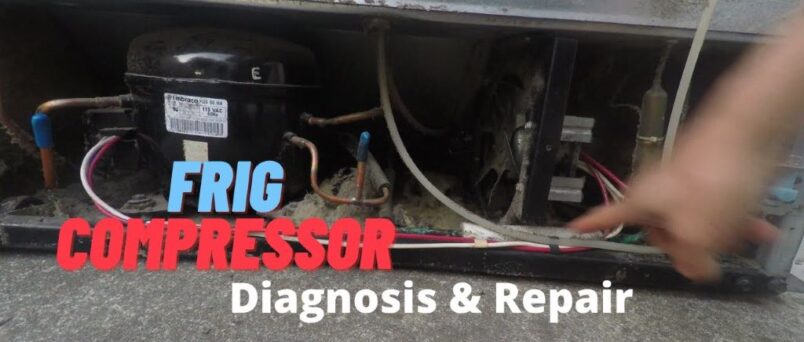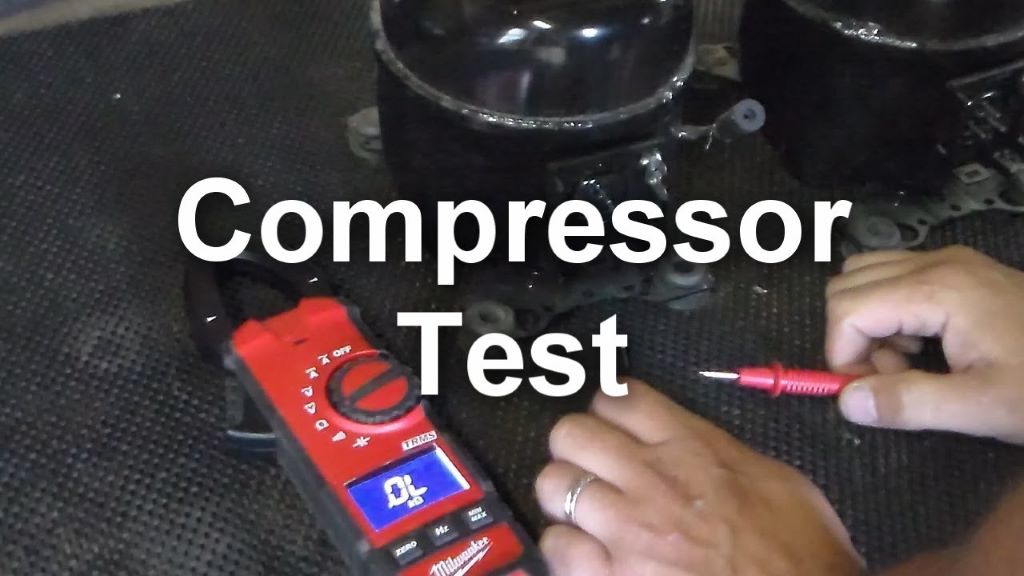Is your refrigerator not cooling as it should? Are you worried that the compressor might be the culprit? The compressor plays a crucial role in the refrigeration process, and any malfunction can lead to inadequate cooling. In this article, we will explore the signs of a faulty refrigerator compressor, helping you identify the issue and take appropriate action.
Understanding the Role of the Compressor
Before we delve into the signs of a malfunctioning compressor, let’s briefly understand its role in the refrigerator. The compressor is essentially the heart of the cooling system. It circulates refrigerant gas through the coils, compressing it to increase its temperature and pressure. This process enables the refrigerant to absorb heat from the food stored inside the refrigerator, cooling it down. A malfunctioning compressor can disrupt this process and result in inadequate cooling or a complete breakdown of the unit. Find out how do you fix a warm fridge and cold freezer.
Unusual Noise Levels
One of the primary indicators of a faulty compressor is unusual noise coming from the refrigerator. If you notice loud, grinding, or buzzing noises that weren’t present before, it could be a sign that the compressor is struggling to function properly. These noises often occur when the compressor motor is working harder than it should or when internal components are wearing out. If you observe such sounds, it is advisable to seek professional assistance to diagnose and resolve the issue.
Inadequate Cooling
If your refrigerator is not maintaining the desired temperature despite setting it correctly, it could indicate a compressor problem. When the compressor fails to pump refrigerant properly, the cooling efficiency of the unit decreases. You may notice that your food is spoiling faster, or items in the freezer are thawing. In such cases, it is crucial to take prompt action to prevent further damage and potential food waste.
Constantly Running Compressor
A normally functioning refrigerator compressor operates in cycles. It turns on to cool down the interior and shuts off once the desired temperature is reached. However, a faulty compressor might run continuously without cycling off. This constant operation not only indicates a potential issue with the compressor but also leads to increased energy consumption. If you notice that your compressor is running non-stop, it’s advisable to have it inspected by a professional technician.
Hot Exterior Surface
Another telltale sign of a malfunctioning compressor is an abnormally hot exterior surface of the refrigerator. While it is normal for the back of the fridge to feel warm due to heat dissipation, excessive heat on the sides or front can indicate compressor problems. The compressor may be overheating due to increased workload or internal issues. If you feel significant heat emanating from your refrigerator, it’s recommended to have it checked to avoid potential hazards.
Tripped Circuit Breaker
In some cases, a faulty compressor can trip the circuit breaker connected to your refrigerator. This occurs when the compressor draws excessive electrical current due to malfunctioning internal components. If you find that your refrigerator’s circuit breaker frequently trips, it’s a strong indication that the compressor requires attention from a qualified technician.
Age and Maintenance History
The age and maintenance history of your refrigerator can also provide insights into the condition of the compressor. If your fridge is reaching the end of its expected lifespan or has a history of inadequate maintenance, it becomes more susceptible to compressor issues. Regular maintenance, such as cleaning the coils and ensuring proper ventilation around the unit, can help prolong the compressor’s lifespan and reduce the likelihood of malfunctions.
Conclusion
A malfunctioning refrigerator compressor can disrupt the cooling process and lead to inadequate cooling or complete breakdown of the unit. By paying attention to signs such as unusual noises, inadequate cooling, constant running, hot exterior surface, tripped circuit breaker, and considering the age and maintenance history of the refrigerator, you can identify potential issues with the compressor. It’s essential to seek professional assistance to diagnose and resolve any compressor problems to ensure the proper functioning of your refrigerator.
FAQs
- Can I fix a faulty compressor myself?
Repairing or replacing a faulty compressor requires specialized knowledge and expertise. It is advisable to contact a qualified technician who can accurately diagnose the issue and perform the necessary repairs.
- How long does a refrigerator compressor typically last?
The lifespan of a refrigerator compressor can vary depending on factors such as usage, maintenance, and quality of the unit. On average, a compressor can last between 10 to 20 years.
- Is it worth repairing a faulty compressor, or should I buy a new refrigerator?
The decision to repair or replace a faulty compressor depends on various factors, such as the age of the refrigerator, the cost of repairs, and the availability of spare parts. Consulting a professional technician can help you make an informed decision based on the specific circumstances.
- Are there any preventive measures to avoid compressor issues?
Regular maintenance, including cleaning the coils, ensuring proper ventilation, and avoiding overloading the refrigerator, can help prevent compressor issues. It’s also advisable to address any signs of trouble promptly to avoid further damage.
- How much does it cost to replace a refrigerator compressor?
The cost of replacing a refrigerator compressor can vary depending on factors such as the brand, model, and availability of spare parts. It’s best to contact a technician for an accurate assessment of the cost involved.


